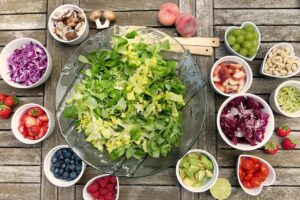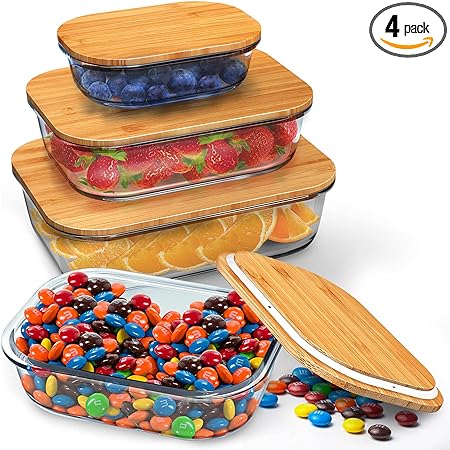A Sustainable Solution for Health and the Planet
By Jillian Dunayer
Meal prepping has recent gained popularity because of its convenience, health benefits, and positive impact on the environment. By taking a proactive approach to planning and preparing meals ahead of time, we can significantly reduce food waste, minimize packaging waste, and make more sustainable food choices. Embracing meal prepping can be a simple yet impactful way to adopt a more environmentally conscious lifestyle!
Eco- Conscious Materials: Glass Food Storage Containers (Bamboo)– I recommend these plastic-free bamboo containers. All of the materials used are kind to nature–from the box down to the silicone seal that keeps the lids airtight!
Benefits of Meal Prepping:
- Minimizes Packaging Waste– By preparing meals at home and storing them in reusable containers, you can significantly reduce reliance on disposable packaging.
- Reduces Food Waste– When we plan our meals in advance, we’re less likely to overbuy groceries or let fresh produce spoil in the refrigerator.
- Saves Energy and Resources– Cooking is more energy-efficient than preparing individual meals throughout the week. By maximizing the use of kitchen appliances like ovens, stovetops, and slow cookers, we can conserve energy and reduce our overall carbon footprint.
- Promotes Local and Seasonal Ingredients– When we plan our meals in advance, we can make more intentional choices about the ingredients we use, including opting for local and seasonal produce. Choosing locally grown fruits and vegetables reduces transportation emissions associated with long-distance food shipping and supports local farmers and producers.
- Encourages Plant-Based Eating– Plant-based diets have been associated with lower carbon footprints compared to diets high in animal products.
 Meal prepping provides an opportunity to incorporate more plant-based meals into our weekly menus. By prioritizing fruits, vegetables, legumes, and whole grains in our meal prep recipes, we can reduce the environmental impact associated with animal agriculture and support sustainable food systems.
Meal prepping provides an opportunity to incorporate more plant-based meals into our weekly menus. By prioritizing fruits, vegetables, legumes, and whole grains in our meal prep recipes, we can reduce the environmental impact associated with animal agriculture and support sustainable food systems.
*Overall, meal prepping is eco-friendly and it contributes to a healthier planet. It offers numerous eco-friendly benefits that extend way beyond the kitchen. By reducing food waste, minimizing packaging waste, promoting plant-based eating, supporting local agriculture, and conserving energy and resources, meal prepping provides a practical and sustainable solution for individuals looking to make a positive impact on both the planet and health.
